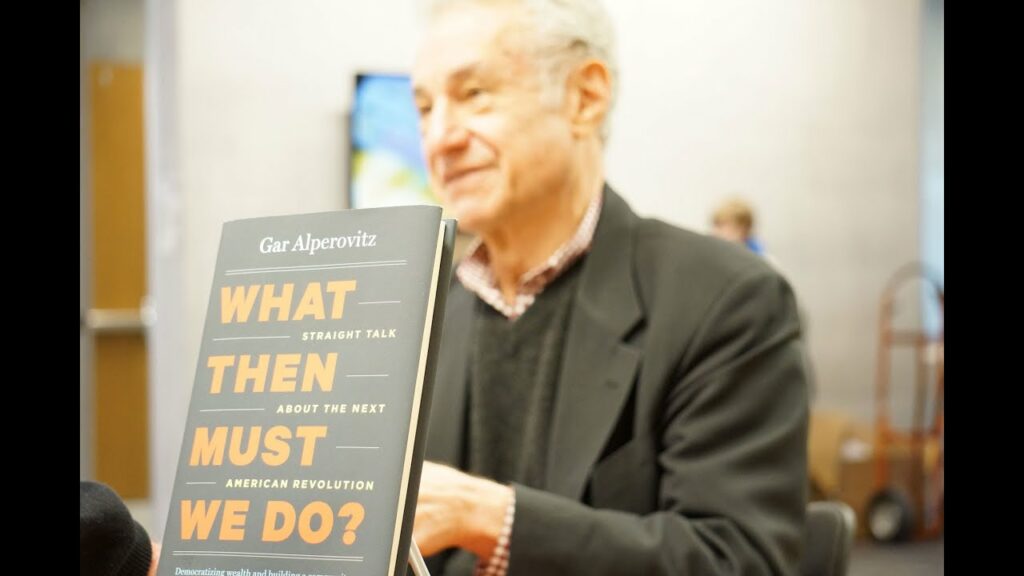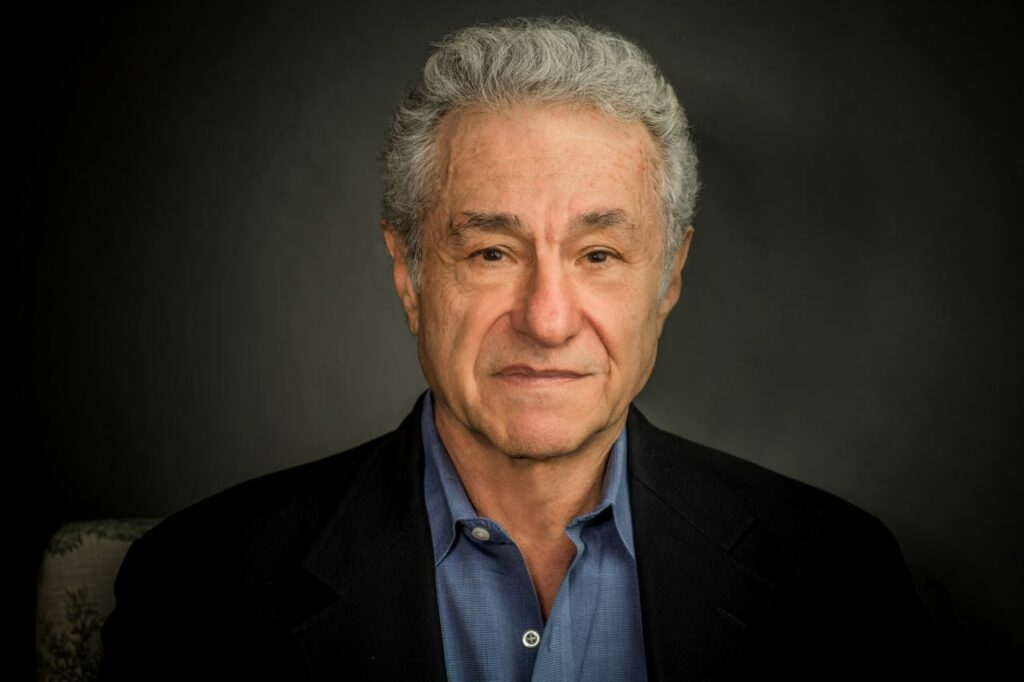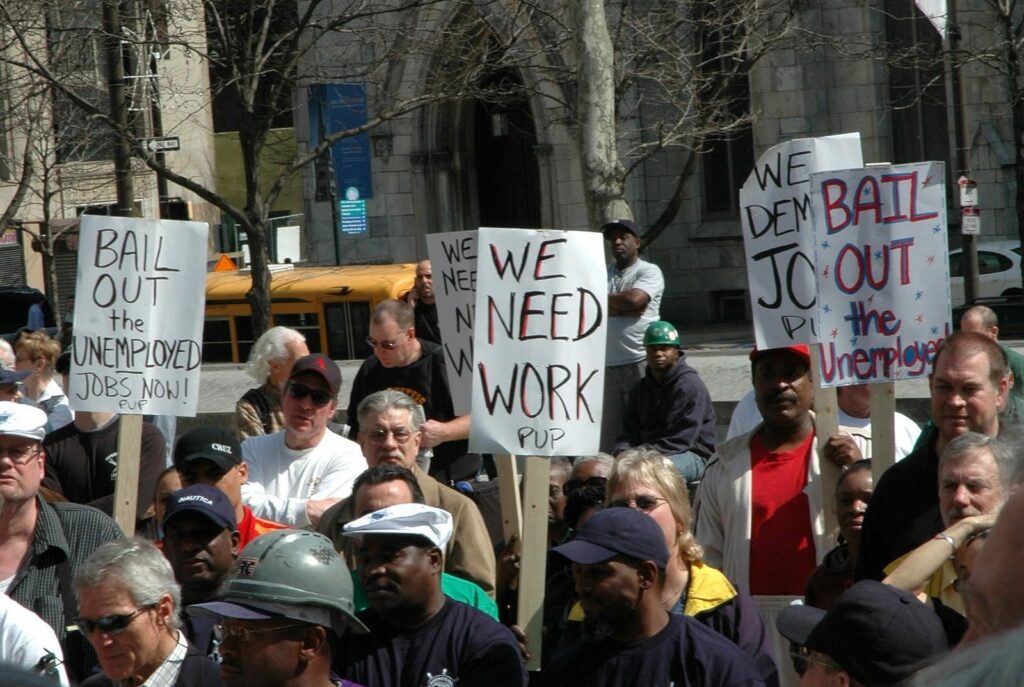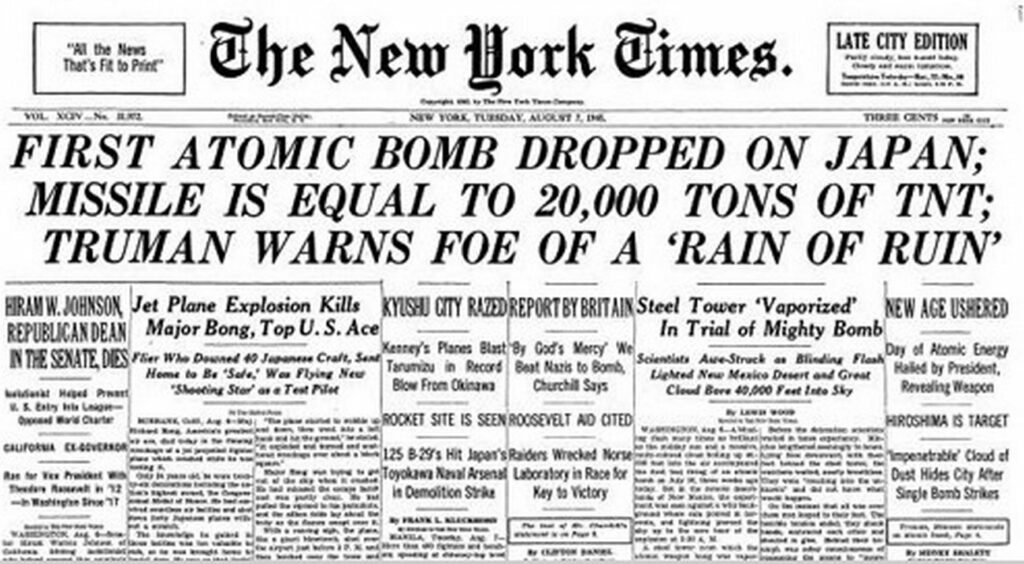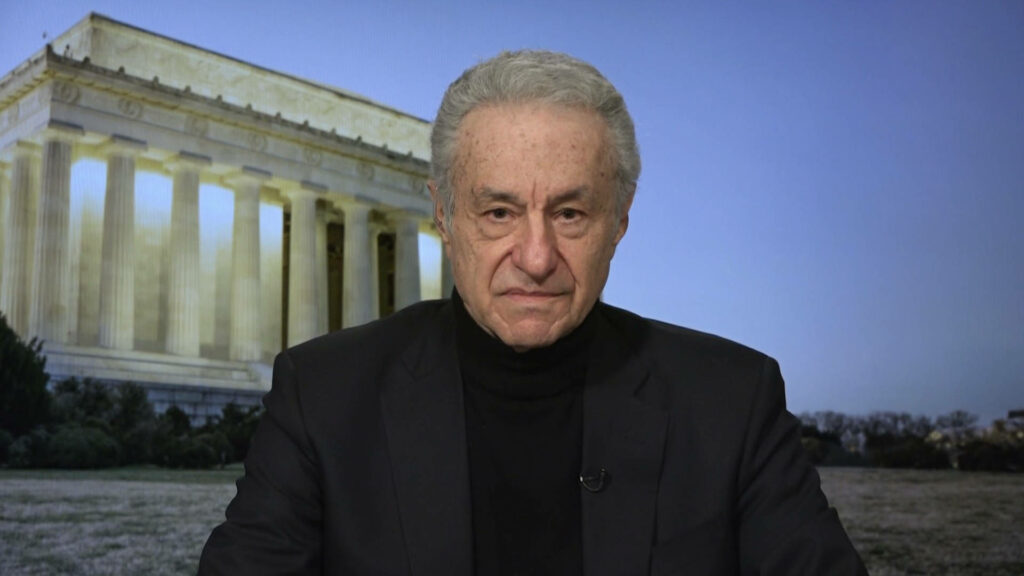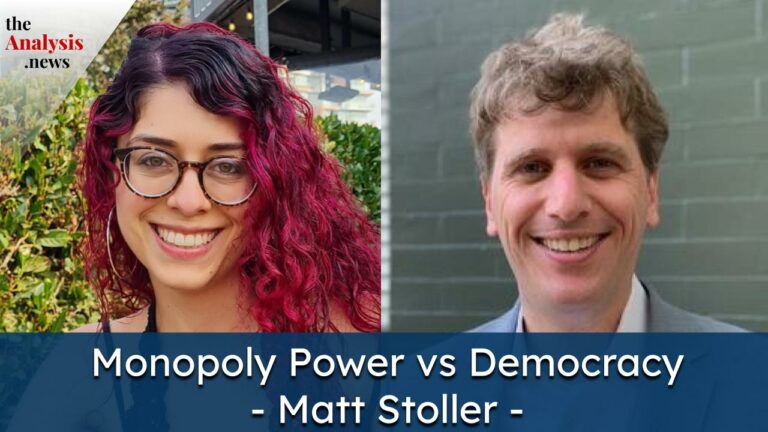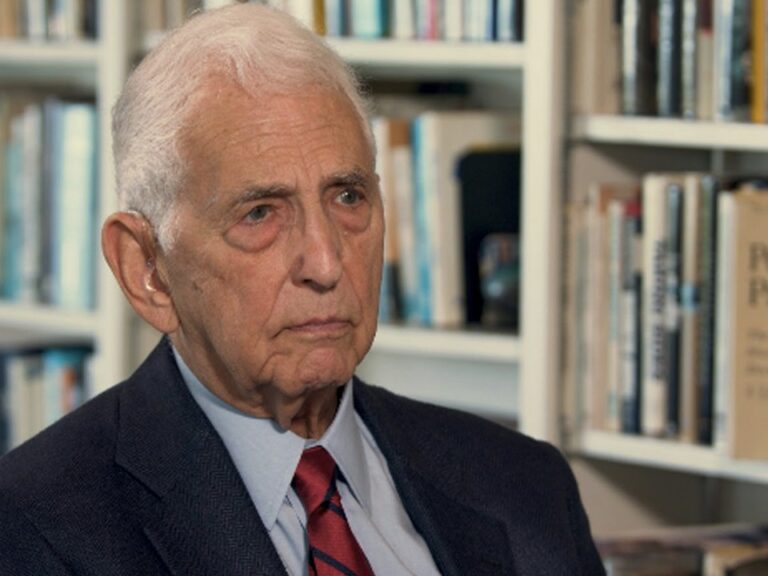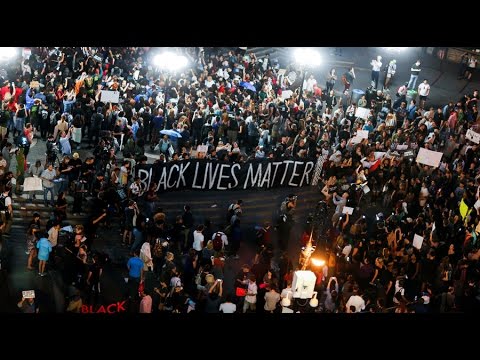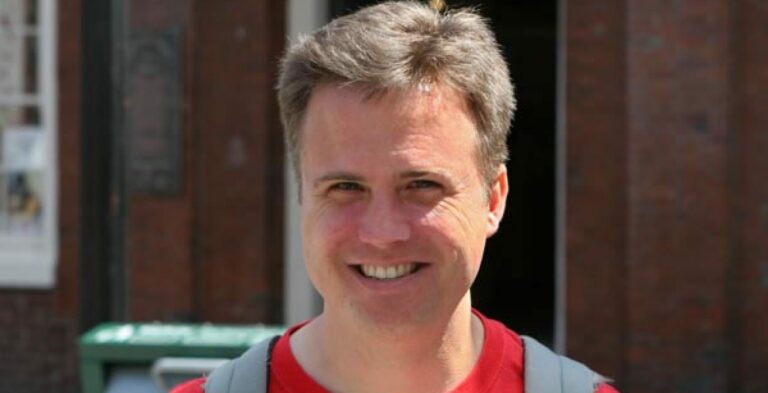This interview was originally released on January 23, 2014. Mr. Alperovitz tells TRNN Senior Editor Paul Jay that the Vietnam War made it clear there was no way to a more rational capitalism, and there had to be fundamental change.
PAUL JAY, SENIOR EDITOR, TRNN: Welcome back to The Real News Network. I’m Paul Jay in Baltimore. And welcome to a new edition of Reality Asserts Itself.
I think to most rational people, if one surveys the global economy, you would have to come to the conclusion that capitalism–as we know it, at least–ain’t working, certainly not working for most people. It’s–guess it’s working pretty well for a very few people. But over the last century or so, you could make the argument capitalism worked for a lot of people, a lot of people meaning in the United States, Canada, and Europe, not so much in Asia, Africa, and Latin America, except for a tiny elite.
But even in the countries that seem to have done relatively well under capitalism in previous decades, you can’t say that anymore. Most Americans are not doing very well. And the same is true for Europeans; and Canadians, I think, can hear the thunder coming.
So what’s next? Is there a world, a life, an America after capitalism? A lot of people are talking about what that might look like. And our guest, who joins us in the studio, is doing a lot of thinking and working about all of that.
And now joining us in the studio is Gar Alperovitz. He’s the Lionel R. Bauman Professor of Political Economy at the University of Maryland and the cofounder of the Democracy Collaborative. He’s also served as a legislative director in the U.S. House of Representatives and the U.S. Senate and as a special assistant in the Department of State. His articles have appeared in many publications, including The New York Times, The Baltimore Sun, Foreign Policy, and so on. He’s also the author of several books, including America beyond Capitalism, The Decision to Use the Atomic Bomb, and his most recent, What Then Must We Do? Straight Talk about the Next American Revolution.
Thanks for joining us, Gar.
GAR ALPEROVITZ, COFOUNDER, DEMOCRACY COLLABORATIVE: Glad to be here. Thanks for having me.
JAY: So I know you’re not going to disagree what with what I just said. I don’t think you are. Let me add, some people want to go back to that kind of capitalism that was better, at least, for more people. I personally think that horse has not only has left the barn, but that capitalism that was better for more people is also the capitalism that brought us World War I, World War II, and a lot of other catastrophic atrocities and climate change crisis. So I’m not entirely sure exactly why people want to go back to it, but there seems to be some nostalgia for those good old days.
But you’re not talking about going back. You’re talking about going forward, and you’re trying to imagine what that is.
For most people that watch The Real News, you know we often–not always, but often start these interviews with some personal biography: what does our guest–not so much what our guest thinks, but why do they think what they think. And that’s what we’re going to do now with Gar.
So tell us your story. First of all, where are you born? And what was the political culture of the household you grew up in?
ALPEROVITZ: Well, I was brought up in Racine, Wisconsin, at that time an industrial–thriving industrial city in the Midwest [incompr.] farm equipment, industrial-scale–Case, Western [keIs@n] harvesters, all sorts of tractors were being built.
It was a labor town, but my parents were–I think would be called Eisenhower Democrats, moderate Democrats, but very oriented to the community. They were concerned about the community. They would help on community drives. My mother was involved in the Cancer Society.
JAY: What did they do?
ALPEROVITZ: They were not explicit. She would work to raise money for the cancer efforts. They would help tutoring the kids. But they were not particularly political people.
JAY: What did they do for the a living?
ALPEROVITZ: My father was an engineer, owned a very, very small–he was a partner owning a very, very small factory, made little parts for farm implements. My mother was a housewife who wanted to go to college, but the boys went first and she couldn’t go in those days.
JAY: Now, Eisenhower Democrats, these are Democrats that vote for the Republican Eisenhower, who was the American general in World War II and represented a kind of more rational republicanism, but also a very strong Americanism. And do you grow up with Americanism as a religion, in a sense?
ALPEROVITZ: It was not explicitly political. It was about how do we have a nice community, how are people better to each other, couldn’t there be more equality. In that community, during World War II, the black migration came up to work in the industrial parts of the city. So it’s the kind of city that in my high school elected the one black guy president. It was very liberal in its racial policy, in civil liberties, but not very political beyond that. They’re very moderate. But it had a sense of community, and I think that was probably the most interesting thing about it culturally.
I always tell this story. They had a zoo and they had no elephant, so they put up a big kind of papier-mâché elephant with a slot, and people dropped money in it, and finally the community got its elephant. That was kind of that feeling for it. So not explicit, but internally the culture was communitarian.
JAY: And to what extent is the American narrative part of you as you grow up? And by American narrative I mean the shining city on the hill, we have to police the world or there’s going to be chaos, America won the World War II and is safeguarding democracy and freedom, and so on.
ALPEROVITZ: It wasn’t part of the game. It was not really the question people asked.
JAY: Not within your–not part of your belief system?
ALPEROVITZ: It wasn’t central to anything. At that point in time it was peripheral. What mattered was the kids going to college, having a nice–I should have been a doctor. That would have been a nice–that’s what they wanted me to be. Do well [crosstalk] community.
JAY: What year do you go to college?
ALPEROVITZ: I went to college 1955. So it’s in the middle of the McCarthy era.
JAY: I was about to say. So your teenage years is in the midst of McCarthyism, and, I mean, you can’t turn on the TV without some TV show talking about the red scare.
ALPEROVITZ: It’s the red scare. But more important, in Racine–this part was political. It wasn’t–my parents weren’t involved in it. But McCarthy was around, and McCarthy on the national scene, you know, attacked anything and kept–the fear mongers in the McCarthy era were extraordinary, but it Wisconsin it was triple. They shot anything that moved politically. So my high school teachers were scared to talk about anything politically, even though they were pretty liberal. But there was a whole generation that was–that was kind of the culture at the level of fear. At the other level it was: how do you build a nice community? So those two things went side-by-side [crosstalk] ideology.
JAY: How much do you internalize the Cold War narrative, that socialism is the–communism’s a great threat and–?
ALPEROVITZ: When I was a kid, I was not involved in that. I probably didn’t care much about it. I was going to be–I was a smart young kid, going to do either engineering or physics or math. I wasn’t political. That all shifted when I got out of the high school and into the University of Wisconsin at Madison, where I really became much more political then.
JAY: What happened?
ALPEROVITZ: Well, I ran into, I think, a couple of really important people. One of them was William Appleman Williams, the great kind of radical historian, and he was at his prime in that point. That was really–I was taken and many people were taken at that point in time with the really beginning critique by the radical historians of the Cold War, not just the critique at one level, but the historical, deep critique, both culturally, ideologically, institutionally. It was being opened up in a big way in the historiography of that period.
And I began to really–I have a bachelor of science degree, since I was a premed, in American history. So I then switched to American history and then developed the historical ideas and dropped all the science and dropped the premed and dropped all of that. So college was where the world hit me and the whole new vision hit me.
JAY: And what were some of the sort of–in terms of your understanding of history now, what is some of the mythology that starts to reveal itself?
ALPEROVITZ: Well, what is interesting about the development at that time–and it was a very sophisticated development, not only of the power of capitalism, but of the power of generating a culture and ideology which encapsulated the society and gave people ideas about what could or could not be done, including American imperial ideas, and how that was formed, not a crude analysis of just the power of the corporations. Indeed, if you look back at that, who pushed for American imperialism at the beginning of the 20th century, it’s not only Wall Street; it’s the farmers who want markets, small businessman. So it’s a very big culture, a big theory of what they were doing.
JAY: And sections of the unions, too.
ALPEROVITZ: And sections of the unions.
JAY: Samuel Gompers, after World War I, is actually at Versailles helping negotiate the treaty.
ALPEROVITZ: Absolutely. And the AFL-CIO later became very strong. So it’s a much broader understanding of how the system works and how its ideology works than the conventional or crude kind of analyses of this. And that’s what really I began to think a lot about and began to do research on, and that’s what got me deeply involved intellectually and politically. Changed my life.
JAY: So it’s somewhere along the line here that you start looking into and questioning the whole use–Americans’ use of the atomic bomb at the end of World War II.
ALPEROVITZ: Yes. I started my PhD thesis on how Americans during World War II–this was at Cambridge; I was at the University of Cambridge–how Americans during World War II began to plan for organizing and controlling the global economic system. They wanted to run it. And they wanted to run it for lots of reasons, capitalist reasons, but also ideologically they thought it would–this was the way to make for a democracy, liberty, freedom. That was all part of the ideology. And I was looking at how they planned that.
And they did plan it. They had a whole theory of what we call globalization now. And free market things you see today are extensions of that theory. And they had control. Everybody else had been defeated. So when I was–I was interested in that founding period.
And as I went through it, it became clear in 1945 that they ran into the Russians in Eastern Europe. And how do you control the European economy if the Russians are there? That’s what I was studying.
And it turns out there are discontinuities in the negotiations over Europe in the spring of 1945. The U.S. gets very tough: we’re going to have to move our troops to Japan; we’d better have a showdown with the Russians now before we move. And then all of a sudden they relax and they start being very nice to the Russians. And why did that happen is what really intrigued me. Not explained.
Well, what happened is the secretary of war came into the president’s office and he says, now is not the time (in April 1945) to have a showdown. Wait for a few months and I’ll give you something better–namely, the atomic bomb.
JAY: So we’re not going to get into the whole story of the bomb now, but we’ll do it in the next part.
But just in terms of your own thinking about the world and what you would be doing with your life, was this a pivotal moment when you kind of realize (and to give–this is a spoiler for the next thing) that the bomb–there were no real military reasons, you conclude, and this is a rather cynical use of the bomb? What does that do to your feeling about America and what you’re going to do with your life?
ALPEROVITZ: Well, the atomic bomb story turns out to be part of it. But it was deeper, because if you look back at the history of American imperialism, there are millions and millions of people who suffered under the 100 years of the [incompr.] So I was building up to it; and indeed the bomb was the crescendo, but I had been building up to a different understanding long before that. So it crystallized something.
We’re going to talk about this later, but the most significant moment was after the bomb was used. After the Japanese publicly surrendered (Radio Tokyo) but before the papers had arrived, they ordered the largest bombing raid in world history–1,400 bombers. And that tells you something about the culture and the ideology in the ongoing intensity of the system that was generating all this and the culture behind it.
So it’s deeper than the bomb decision. It’s really implicated in the culture and the institutions.
JAY: So the process leading up to and this, as you say, as the crescendo, your understanding of the use of the bomb, this completes a phase, at least, of your radicalization, can I say?
ALPEROVITZ: Yes, in some sense. Yes.
JAY: And then so what do you do next?
ALPEROVITZ: Well, then the question is: what is to be done?
JAY: Yes.
ALPEROVITZ: And I had worked prior to this for two years in the House of Representatives for a very, very liberal congressman, Robert Kastenmeier of Wisconsin, who represented Madison. So prior to going to Cambridge to do my PhD or finish my PhD, I’d been in the House of Representatives and had–I knew how to do that. And he was one of the most liberal guys, and we knew how to get legislation passed. At that period, it was the Kennedy-Johnson era.
And then there was the Goldwater debacle, which brought in a change of 76 votes in the House. And Lyndon Johnson at that point–at that point, Lyndon Johnson was the most progressive Democrat there was. He hadn’t yet gone to Vietnam. And a new senator, a very liberal senator, was elected from Wisconsin, Gaylord Nelson, and he asked me to come and run his legislative division. So I said, yes, let me do it; I’m happy to do it for a couple of years. We’ll see what happens. So I went to work in the Senate to see how that–and I also wanted to learn: how did it work on the inside? I really wanted to do that.
JAY: And did you have some hope that some real reform was possible from the inside?
ALPEROVITZ: At that moment, the 89th Congress, the House had changed 76 votes because of Goldwater, and the Senate was very pro-Democrat. You could pass–he passed Medicare, he passed Medicaid. You could pass progressive legislation, water bills. It was an amazing moment. And for a moment I thought that was possible. And, of course, after the next election it disintegrated. We went back to the norm. But at that particular moment it–and that’s a very odd two years in the U.S. Senate. And I happened to be running a legislative shop. And we could pass all kinds of legislation at that point, including legislation to set up community ownership and to pass–we did a bill in those days, 33 senators, including half liberal Republicans, to set up community-owned industry. And they put it in–it’s actually, if you look carefully, it’s in the party platforms of both parties, ’cause we wrote it into the platforms. And that all went away after the election of nineteen sixty–ninety-six. And then, of course, the Vietnam War took it all back to what was the norm. So there was a brief moment, but it was an aberration, and I realized it was an aberration.
JAY: And what’s your experience during the Vietnam War?
ALPEROVITZ: Well, I was involved in the Senate at the time of the Gulf of Tonkin resolution, which laid the basis for expanding it, and it was obvious to me that this was a phony.
JAY: Okay. Really quickly, for some of our younger viewers, just a ship, an American naval ship gets attacked. And later we learn that this was essentially what they’re now calling a false flag operation.
ALPEROVITZ: Yeah. It was–there was–something happened in the Gulf of Tonkin off of Vietnam. Some speedboats or–it probably didn’t actually do much damage, if any. And that was the excuse, just as we went into the Iraq War, for what was called the Gulf of Tonkin resolution, which gave the president authority to go to war in Vietnam. And it was a phony. It’s now known to be a phony. But it seemed to me and to several people working in the Senate it was a phony at the time, and I happened to write the legislation to try to limit it. We got it up and we got the majority leader to say, yes, this has got to be limited, making a record, which is supposed to mean the interpretation of the law. But we didn’t get a vote, so it was–you know, it was a gesture to try to limit it.
They were going to war. They understood what they were doing. And it was just like going into the recent war in Iraq. It was a calculated move, and they wanted to go, and they did it.
JAY: And what do you do?
ALPEROVITZ: Well, I was finishing up in the Senate. My book on the atomic bomb came out in 1965, the 20th anniversary. I was still working in the Senate. It was front page of The New York Times, front page of The Washington Post, saying the U.S. dropped the bomb to scare the Russians, which is the major, slightly overdramatic interpretation. And I was working in the Senate. So it was a remarkable moment.
The reviewer in The New York Times was Clinton Anderson, who was the chief–had been in Truman’s cabinet. He was the chief of the nuclear lobby. And he reviewed it. And I ran into him one day in the Senate, and he said, oh, I didn’t realize you were Gaylord Nelson’s assistant; I would have written a different review, son. It’s the way the game is played.
JAY: I mean, what you did is question something rather at the core of the postwar American narrative. This is not America the good guy defending peace and democracy and such; this is–America’s using a weapon of mass destruction to make a political point.
ALPEROVITZ: That’s right. That’s the argument. And I think that’s–most people around the world understand that, and a good part of the American historical community understands that, though it still debated.
Most historians now agree the bomb was totally unnecessary. They understand that, both in advance and in retrospect. Yes, in retrospect for sure, and in advance the intelligence estimate said the war could end easily. We know that now. And then a number of historians agree, and around, outside United States far more, that to threaten the Russians, implicitly threaten the Russians was a big part of the decision.
But at that moment, that was big news and shocking and very dramatic.
JAY: Well, you’re accusing the president and the military leadership of slaughtering tens of thousands of people.
ALPEROVITZ: Hundreds of thousands.
JAY: Hundreds of thousands of people.
ALPEROVITZ: Civilians.
JAY: Civilians, and then unleashing a weapon that–I know some of the critique of this is there may have been as many people killed in conventional bombing, but it opened the door to the use of this kind of weapon that begins what, you know, could have been and still might be the end of the world.
ALPEROVITZ: And unnecessarily, without reason. Not–you mentioned the civilian leadership and the military. So far as we know, the military didn’t want to do it. All the major generals, all of them, with one minor exception, and all of the admirals involved went public after the war saying the bomb was totally unnecessary–Eisenhower, McArthur. Admiral–the chief of staff of the president, the very conservative Admiral Leahy, and a good friend, went public saying it was barbaric. LeMay, Curtis LeMay, the tough Air Force general, went public saying this was totally unnecessary. The military, so far as we can tell, was not for this.
JAY: So this was all driven by Truman.
ALPEROVITZ: By Truman and his secretary of state, Byrnes, who was coming out of diplomacy, not out of the military. The military was–many of them were shocked by it.
JAY: But now you write this. You’re in the Senate. You have unraveled, you know, one of the most important myths of Americanism. Vietnam War. Then what?
ALPEROVITZ: Then I get an odd call from an assistant secretary of state, who is the guy in the State Department who does the UN side of the State Department: would I like to come out of the Senate and be his special assistant? Now, this is odd. I’ve just written a book we just talked about, saying America had started the Cold War and bombed these people unnecessarily, and I–what is this about? And it’s the middle of the Vietnam War.
So I met with him. And what had happened is we had Arthur Goldberg, who was a justice of the Supreme Court, moved to become the UN ambassador, and a new part of the State Department, to back him up, the assistant secretary was brought in, and he asked me to be his chief assistant. So I didn’t know what this meant.
So I went over to another senator’s office, famous, that young people probably don’t remember–it was Frank Church, who was a leading senator who exposed the CIA. His office was right across the way. And I said, Senator, what should I do? ‘Cause he’s on the Foreign Relations Committee. He said, well, go ask them if they–tell him you want an FSR1, you want to be–that’s the top of the rank, top–you can’t go higher. Tell them you’re going to do this to study bureaucracy, and tell them you want to control anything on Vietnam that goes through the UN, which is really the most important point. And so I did that. I said–and I particularly wanted to–I want the UN–I want the Vietnam portfolio, ’cause that’s why I would come in. Maybe I could do something. Maybe I could help. So he agreed to all that.
JAY: Why, do you think?
ALPEROVITZ: Why? It’s very interesting, because what he really wanted was–I worked in the Senate and knew all the Senate aides. He didn’t care about books. He wanted my connections with the Senate aides who I’d gotten to know over two years, and he thought that would help him in some way. I think that’s what he did it.
JAY: There is no way we’re going to cover the whole scope of everything you’ve done your life, not because you’re 77 years old, but because you’ve done too much. But I just want to jump from here ahead.
But from here, at this point, do you still think that the basic problems facing people can be solved within capitalism?
ALPEROVITZ: No.
JAY: You don’t think so at that time?
ALPEROVITZ: At that time I thought there might be a path to move the whole thing way over to a left social democratic position, maybe.
JAY: So there was the potential for some kind of a social democratic, progressive, more rational capitalism.
ALPEROVITZ: I doubted that leaving the Senate, because that was such a brief moment in the 89th Congress. So I had grave doubts, ’cause that was a moment, but it was aberrant. It was an aberration. So I had grave doubts.
And I went to work in the State Department ’cause I thought I could do something on Vietnam, maybe. I lasted one year and then left and joined the antiwar movement.
So after that it became increasingly obvious that unless you change the system, really fundamentally change the system, you weren’t going to get anywhere and that that was the challenge. I had been moving in that direction, but that was, I think, crystallized by that experience.
JAY: Okay. Well, in the next segment of our interview, we’re going to deal a little bit–we’re going to do one segment on the bomb, because Gar was the first one, I think. Were you the first one?
ALPEROVITZ: People have speculated about it.
JAY: You’re the first one to make the case–
ALPEROVITZ: Yup.
JAY: –on the use of the bomb. And then we’re going to pick up what will become the main theme of this series, which is: if capitalism is out of answers, then what might have answers?
So please join us for the continuation of our series of interviews with Gar Alperovitz on Reality Asserts Itself on The Real News Network.
[simpay id=”15123″]
Never miss another story
Subscribe to theAnalysis.news – Newsletter
“Gar Alperovitz is an American historian and political economist. Alperovitz served as a fellow of King’s College, Cambridge; a founding fellow of the Harvard Institute of Politics; a founding Fellow at the Institute for Policy Studies; a guest scholar at the Brookings Institution; and the Lionel R. Bauman Professor of Political Economy at the University of Maryland Department of Government and Politics from 1999 to 2015. He also served as a legislative director in the US House of Representatives and the US Senate and as a special assistant in the US Department of State.”

